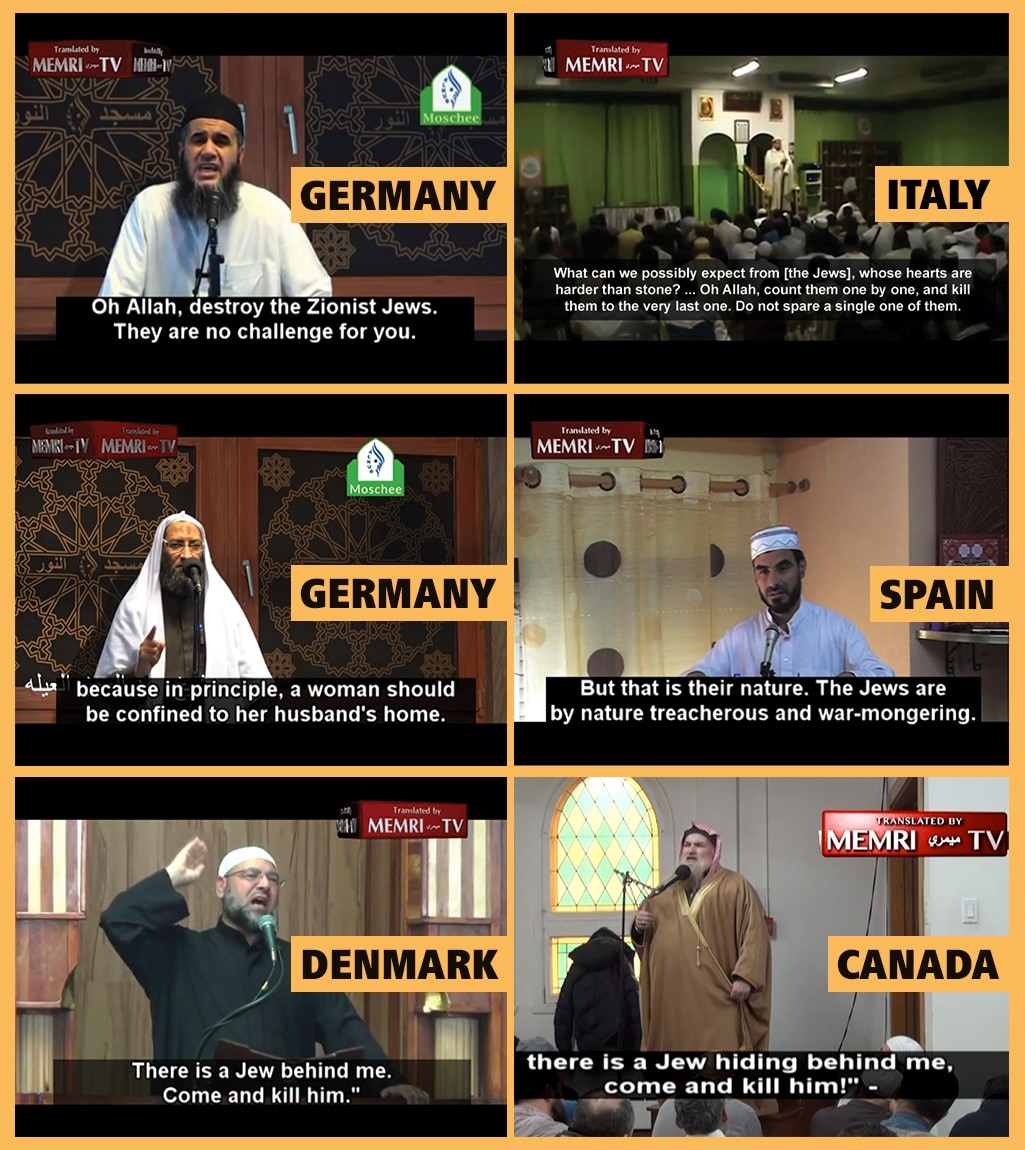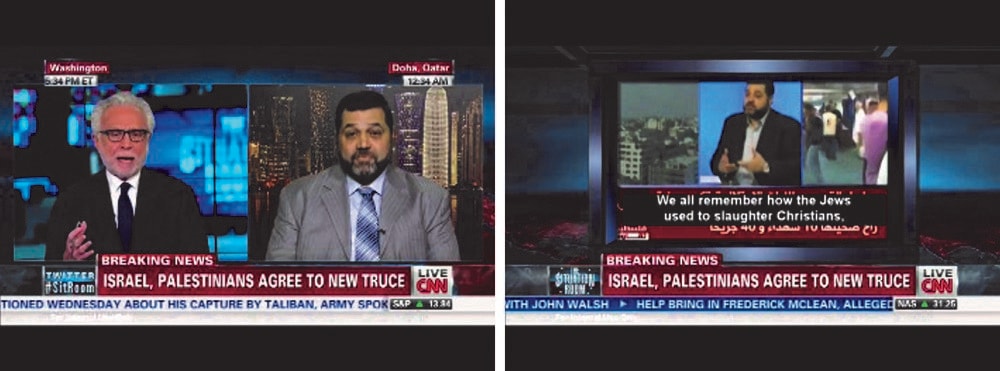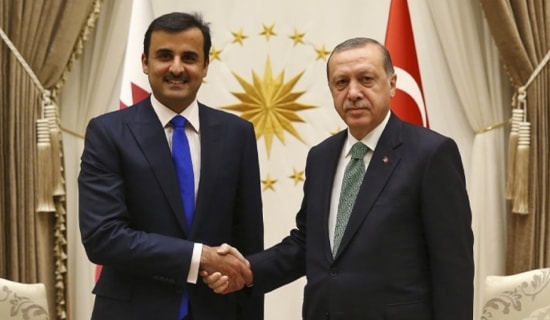Dear Reader,
This month, a sermon by a Copenhagen imam calling for the killing of Jews that MEMRI TV translated led to Danish government action against him – and the MEMRI TV clip was covered by media worldwide. MEMRI TV is the only organization in the world that constantly monitors and translates Arab and Iranian television channels, and also on occasion Urdu and Turkish television channels. In the past year, we have identified additional inciting sermons and imams in mosques in Canada, and before that in Italy, Germany, Spain, Denmark, Australia, and Belgium. In all of these cases, the MEMRI TV clips were widely covered by media internationally, and authorities took action.
In August 2016, MEMRI TV Clip Led Belgian Authorities To Uncover Horrific Terrorist Plot
A critical area in which MEMRI TV is a vital element is in helping to expose terrorist plans and assisting counterterrorism authorities and law enforcement thwart attacks. For example, MEMRI TV's August 2, 2016 release of a clip of a youth walking down a street in Verviers, Belgium praying aloud in Arabic "Oh Allah, annihilate the hateful Christians. Oh Allah, kill them all. Do not leave a single one of them," and MEMRI's provision of this clip to the relevant authorities, led to a wide-scale investigation and to the arrest of both the youth and his parents, as well as of another youth who had filmed the video. But even more importantly, the investigation also turned up the two youths' links to known ISIS operatives – one in Syria and one in Europe – along with very specific plans for a terror spree at a Belgian shopping mall using a chainsaw. The clip also made headlines in all French and Belgian media.
This is the final appeal in our Spring 2017 Campaign. If you have already supported us – we thank you deeply. If you have not given yet, we are kindly asking you, valued reader, to support this uniquely important project. Please read this email so that you will understand MEMRI TV's achievements and why it is uniquely costly.

NO ONE ELSE IN THE WORLD IS DOING THIS VITAL WORK OF MONITORING ARAB AND IRANIAN TV
No other organization in the world is doing the vital work of monitoring, recording, translating, subtitling, and publishing clips from the region's media – let alone doing so 24/7. MEMRI TV monitors nearly 100 Arab, Iranian, and other Middle East television channels around the clock.
MEMRI TV Has Amassed The Largest Archive Worldwide Of Translated Video Clips From The Arab And Muslim World
Over the past decade and a half, MEMRI TV has amassed the largest archive worldwide of translated video clips from the Arab and Muslim world. But creating MEMRI TV clips is an expensive, time-consuming, and resource-intensive process – from recording the raw programming to translating the content to creating English subtitles to uploading the clip and transcript.
Producing MEMRI TV Clips Requires Substantial Resources
Producing MEMRI TV clips requires an extensive and advanced monitoring system, and tremendous professional and human resources. Also, maintaining our extensive archives requires costly technological support. This is why we need your help in order to continue with our project.

Background on MEMRI TV
The aim of MEMRI TV – like that of MEMRI – is to provide media, academia, legislatures, governments, and the public at large with access to primary source material from the Arab and Muslim world; as of early 2016, this mission has extended to doing the same for Russian primary source material as well.
As explained in September 2004 by Dr. Fatima Al-Sayyegh, dean of the history department at UAE University, MEMRI TV aims to "monitor television programs, mostly, talk shows and religious programs and to analyze them, in order to find out what the Arab man on the street thinks, what is the discourse in the Arab media that is directed at the Arab public."
Indeed, MEMRI TV clips are used by governments, legislatures, and academia worldwide – with 250 million views to date.
MEMRI TV Clips Used By U.S. And Western Militaries, Intelligence Agencies, Law Enforcement In All 50 U.S. States
Law enforcement agencies in the West need MEMRI TV clips: MEMRI TV clips are regularly requested and used by all branches of the U.S. military, and other countries' militaries, as well as by law enforcement in all 50 U.S. states – including fusion centers, counterterrorism divisions, terrorism task forces, and more. They are often requested by NATO and EU bodies, and by Western governments, militaries, intelligence, and law enforcement agencies – the U.K., Germany, France, and more.
MEMRI TV Clips Have Had A Far-Reaching Impact – Exposing Extremist Imams In The West, Leading To Removal Of Terrorist TV Channels
Exposing Terrorist TV channels
MEMRI TV clips have led to the removal of Middle East TV channels of U.S. Designated Foreign Terrorist Organizations, such as Hizbullah's Al-Manar TV and Hamas's Al-Aqsa TV, from satellite carriers following the release of MEMRI TV clips of the extremist, incitement-laden, and antisemitic content that they broadcast. Other channels removed or banned for such content include the Iranian Sahar TV, the Saudi Iqraa TV, the Egyptian Al-Rahma TV, and the Jordanian Mamnou TV. MEMRI TV clips have been used in multiple terrorism lawsuits as well.
Director Of Hizbullah's Al-Manar TV And Others On Arab TV Discuss MEMRI TV's Role In Removal Of Al-Manar TV And Al-Aqsa TV

Hizbullah's Al-Manar TV director accusing MEMRI,June 16, 2010
Report on Al-Aqsa ban featuring MEMRI TV clips, New TV, Lebanon,June 17, 2010
Exposing Imams – Leading To Arrests, Indictment, And Deportation
MEMRI TV clips have exposed, in addition to the Copenhagen preacher, many imams preaching jihadi incitement extremism, and antisemitism in the West – including in France, Germany, Spain, Australia, Canada, Italy, Sweden, The Netherlands, and more – and as a result measures have been taken against many of them – from investigation to arrest to deportation. Additionally, prominent sheikhs, such as Al-Jazeera TV personality and Muslim Brotherhood spiritual leader Yusuf Al-Qaradhawi, have been banned from entering Western countries based on MEMRI TV clips of their statements.

MEMRI TV Clips Used Extensively By Major Media
On a daily basis, MEMRI TV clips are quoted, screened, cited, and linked to by major U.S. media – from CNN, CBS, ABC, NBC, MSNBC, and Fox News to The New York Times, The Washington Post, The Wall Street Journal, and just about every major newspaper and news outlet in the U.S. They are also used regularly by media in the U.K., France and the rest of Europe, Asia, and the Middle East.

In August 2014, CNN anchor Wolf Blitzer used a MEMRI TV clip to challenge Hamas spokesman Osama Hamdan on his statements in the clip that "it is a fact" that "the Jews used to slaughter Christians, in order to mix their blood in their holy matzos."
Al-Jazeera TV devoted an entire segment to MEMRI TV's impact, stating that it "monitors primarily Arabic-language television broadcasts, then it links to some video clips in particular and provides translations of them for you... [T]hose video clips have been featured on just about every major news network in the United States... since 1998... You may not have heard of them, but chances are you know their work. You've seen it on CNN, Fox, NBC, and CBS. You've even seen it on Comedy Central's The Daily Show."
MEMRI TV Clips Used For Legislation Fighting Anti-U.S. Incitement In Middle East
MEMRI TV clips have been used in preparing House and Senate bills that have been voted into law, including H.R. 2278, passed 395-3 in December 2009, which called for President Obama to transmit to Congress a report on anti-American incitement to violence in the Middle East. The bill read, in part: "(1) Freedom of the press and freedom of expression are the foundations of free and prosperous societies worldwide, and with the freedom of the press and freedom of expression comes the responsibility to repudiate purveyors of incitement to violence." Shortly after its passage, Rep. Bilirakis's legislative counsel stated, "MEMRI was really the catalyst that pushed us to filing H.R. 2278."
On Arab And Iranian TV – Discussing MEMRI TV's Role In Legislation
Syrian Al-Rai TV, September 2008
Lebanese National Media Council president, Syrian TV, March 7, 2010
Lebanese National Media Council president, Iran's Al-Alam TV, March 14, 2013.
MEMRI TV Informs The World About Arab And Muslim Reformists In The Middle East
One of MEMRI TV's most important aims is to give a voice to leading liberals from the Arab and Muslim world, including Iran, who are pro-democracy, share liberal values, and take a stand against jihadism, and also those who counter radicalization and antisemitism. They are subject to severe pressures in their countries of origin, even risking physical harm – and their activities are underreported both in the West and in the Arab and Muslim world. MEMRI TV is rectifying this situation by giving them a global platform – so far it has brought to the West hundreds of such reformists.

MEMRI TV's Impact Within The Arab And Muslim World
In November 2007, influential Arab columnist Jihad Al-Khazen, November 2007 "[produces] accurate and correct translations... If an imam in a small mosque in some village... says anything against the Jews, they translate it and place it on the desks of 435 Congressmen and 100 senators. They have extraordinary monitoring capabilities, and they can cause damage." In December 2010, Abd Al-Bari Atwan, at that time editor-in-chief of the London-based pan-Arab daily Al-Quds Al-Arabi, stated that it was fine to say one thing in Arabic and another in English for a Western audience. In response to an accusation that "was that what I say in Arabic is completely different from what I say in English," he acknowledged that this was true, saying: "How can I say in English the same things I say in Arabic? These are different languages, different audiences... So If I'm sophisticated enough to talk to a Western audience, in a way they understand the conflict, in a very neutral way – or in a scientific or professional way – what's wrong with that?"
Abd Al-Bari Atwan; Jihad Al-Khazen
Although MEMRI TV's most important mission is to inform the West, it has also become a player within the Arab and Muslim countries and societies, having a moderating effect on discourse there. As soon as extremists speaking in Arabic and Farsi know that their words will be translated and disseminated globally – and that what they say to their own audiences in their own language can be viewed by the West – they immediately curb their statements. Warnings and cautions that "MEMRI is watching" appear frequently. For example, on Hamas's Al-Aqsa TV, Azzam Al-Tamimi, director of the London-based Institute of Islamic Political Thought, advised Arab TV channels to be careful about using the term "Jews" and denying the Holocaust, because MEMRI is "ly[ing] in wait."
Tunisian journalist Amal Belhaj Ali said on Tunisia TV that if MEMRI finds "even something trivial that is said in the Arab world against the Jews, they translate it into 70 languages, and send it to all the decision-makers worldwide – to the U.S. Congress, to the Duma, to Germany, to France..."
Iranian political expert Hossein Haghi said on the Iranian News Channel (IRINN) that the "extremely secret institution" of MEMRI has "700,000 to 800,000 people" connected to it, and that "most of the major newspapers and news agencies in the world, such as Reuters and the Associated Press... The Times of London and The Sun... are influenced by the ideas developed by MEMRI."

Were it not for MEMRI TV, no one would have any idea what is being said on Arab and Iranian TV channels. But MEMRI TV cannot continue its work without your support. Please consider making your donation to MEMRI TV a recurring, monthly gift. It is the best way for you to help us. You can donate online, or mail a check to MEMRI, P.O. Box 27837, Washington, DC 20038-7837. Your donation is tax-deductible under U.S. law.





